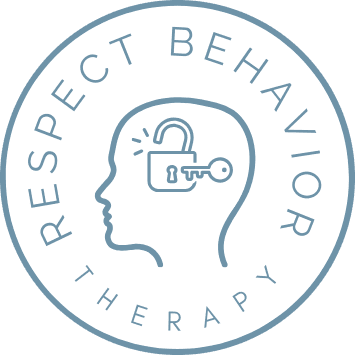The 5 Stages of Child Development and Key Signs of Possible Delays

Posted on January 18th, 2024.
Child development is a fascinating journey filled with growth, milestones, and unique challenges. Understanding the five stages of child development is crucial for parents, caregivers, and educators. Recognizing key signs of possible delays in each stage can make a significant difference in providing the necessary support and interventions for a child's healthy development.
In this comprehensive guide, we'll explore these stages and empower you with valuable insights to help children thrive.
The 5 Stages of Child Development
Child development can be divided into five distinct stages, each marked by significant physical, cognitive, and emotional changes. These stages provide a framework for understanding a child's growth and behavior, allowing parents and caregivers to monitor progress and address potential concerns early on.
1: Infancy (0-2 Years)
The first stage of child development, infancy, is marked by rapid growth and dependence on caregivers. During this stage, infants develop essential motor skills, sensory perception, and form the foundation for emotional bonds.
Key Signs of Possible Delays in Infancy:
- Lack of Eye Contact: Infants should respond to faces and make eye contact within the first few months. A lack of this interaction may indicate a delay in social development.
- Motor Delays: Difficulty in rolling over, sitting up, or reaching milestones like crawling or walking can be a cause for concern.
- Limited Babbling: Infants should start babbling and attempting to imitate sounds by six months. Delayed speech development may require early intervention.
2: Early Childhood (2-6 Years)
Early childhood is a period of rapid cognitive development, language acquisition, and exploration. Children become more independent and start forming relationships outside the family.
Key Signs of Possible Delays in Early Childhood:
- Speech and Language Delays: Difficulty in articulating words or forming sentences by the age of three may indicate speech and language delays.
- Limited Social Interaction: Trouble making friends, playing cooperatively, or expressing emotions appropriately can be early signs of social developmental delays.
- Fine and Gross Motor Skill Delays: Struggles with activities like drawing, holding utensils, or hopping on one foot might indicate motor skill delays.
3: Middle Childhood (6-12 Years)
Middle childhood is characterized by a growing sense of independence, cognitive development, and academic exploration. Children start formal schooling during this stage.
Key Signs of Possible Delays in Middle Childhood:
- Learning Difficulties: Persistent struggles with reading, writing, or math may suggest learning disabilities that require specialized support.
- Difficulty with Friendships: Ongoing issues with forming friendships or maintaining relationships may point to social delays or emotional challenges.
- Behavioral Problems: Frequent temper tantrums, aggression, or defiance may indicate underlying behavioral issues that need attention.
4: Adolescence (12-18 Years)
Adolescence is a period of intense physical, emotional, and social changes. Teens seek autonomy, develop self-identity, and prepare for adulthood.
Key Signs of Possible Delays in Adolescence:
- Academic Struggles: A sudden decline in academic performance, difficulty concentrating, or lack of interest in school may signal learning or emotional issues.
- Social Isolation: Withdrawal from friends and family, excessive screen time, or a lack of social interaction can be indicative of emotional or social delays.
- Risk-Taking Behavior: Engaging in dangerous activities, substance abuse, or self-harm may suggest underlying emotional challenges that require immediate attention.
5: Emerging Adulthood (18-25 Years)
Emerging adulthood is a transitional stage marked by increased independence, career exploration, and the pursuit of personal goals. Young adults navigate the challenges of adulthood while establishing their identities.
Key Signs of Possible Delays in Emerging Adulthood:
- Academic or Career Uncertainty: Persistent indecision about career choices, lack of motivation, or academic stagnation may necessitate career counseling or guidance.
- Emotional Struggles: Excessive anxiety, depression, or mood swings can significantly impact a young adult's well-being and may require therapeutic intervention.
- Relationship Challenges: Difficulty in forming healthy relationships, maintaining friendships, or establishing romantic partnerships may signal underlying emotional or social delays.
Reach out
Understanding the five stages of child development and being vigilant about key signs of possible delays is crucial for parents, caregivers, and educators. Early intervention and support can make a significant difference in a child's growth and future success.
If you suspect any developmental delays in your child or need guidance on supporting their development, Respect Behavior Therapy is here to help. Contact us today at (943) 200-0016 or via email at [email protected] to learn more about our services.
